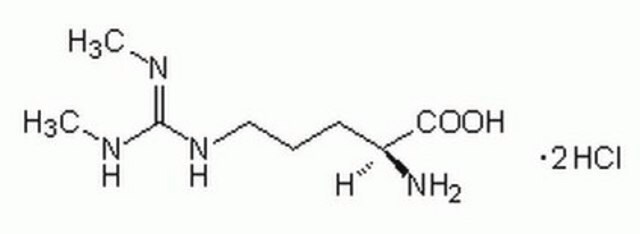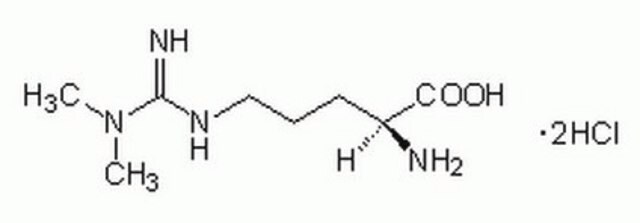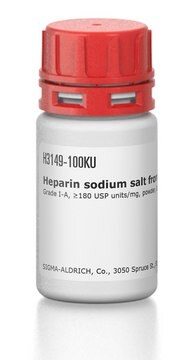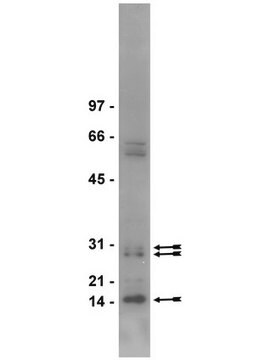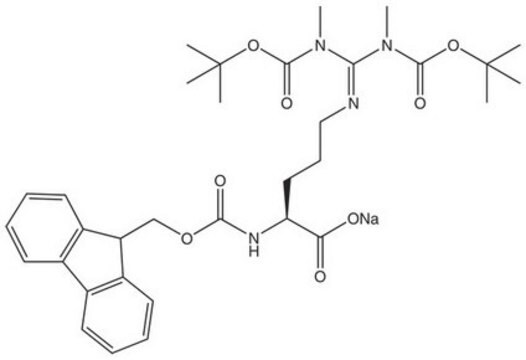D4268
NG,NG-Dimethylarginine dihydrochloride
≥98% (TLC), powder, NOS inhibitor
Sinónimos:
asym-Dimethylarginine, ADMA
About This Item
Productos recomendados
Nombre del producto
NG,NG-Dimethylarginine dihydrochloride,
Ensayo
≥98% (TLC)
Nivel de calidad
Formulario
powder
solubilidad
water: 50 mg/mL, clear, colorless
temp. de almacenamiento
room temp
cadena SMILES
Cl[H].Cl[H].CN(C)C(=N)NCCC[C@H](N)C(O)=O
InChI
1S/C8H18N4O2.2ClH/c1-12(2)8(10)11-5-3-4-6(9)7(13)14;;/h6H,3-5,9H2,1-2H3,(H2,10,11)(H,13,14);2*1H/t6-;;/m0../s1
Clave InChI
SYLNVYJOPZWPJI-ILKKLZGPSA-N
Información sobre el gen
human ... NOS1(4842) , NOS2(4843) , NOS2B(201288) , NOS2C(645740) , NOS3(4846)
Descripción general
Aplicación
- to study its effects on cardiovascular activities in rostral ventrolateral medulla (RVLM) in rats
- as a standard for measuring L-arginine and dimethylarginines
- to study its effects on hepatic deterioration
Acciones bioquímicas o fisiológicas
Código de clase de almacenamiento
11 - Combustible Solids
Clase de riesgo para el agua (WGK)
WGK 3
Punto de inflamabilidad (°F)
Not applicable
Punto de inflamabilidad (°C)
Not applicable
Equipo de protección personal
Eyeshields, Gloves, type N95 (US)
Elija entre una de las versiones más recientes:
¿Ya tiene este producto?
Encuentre la documentación para los productos que ha comprado recientemente en la Biblioteca de documentos.
Los clientes también vieron
Nuestro equipo de científicos tiene experiencia en todas las áreas de investigación: Ciencias de la vida, Ciencia de los materiales, Síntesis química, Cromatografía, Analítica y muchas otras.
Póngase en contacto con el Servicio técnico


